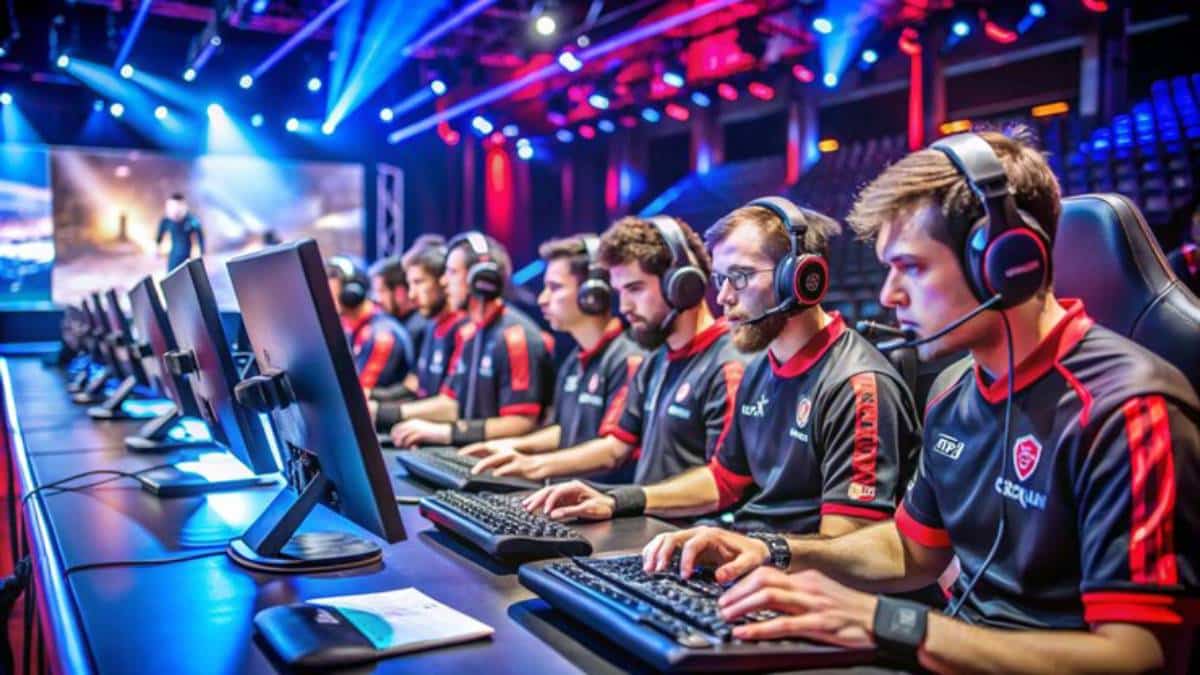
Case Studies: Successful Data-Driven Decisions in Esports
The esports industry has grown rapidly in the last ten years. Millions of fans now watch their favourite teams and players compete in various games. Amidst this surge, the importance of data analytics has become increasingly evident. Teams are using advanced analytics. This helps them get ahead, improve performance, and boost fan engagement. In this blog, we’ll explore case studies that highlight the importance of data-driven gaming strategies in esports.
Key Benefits of Data-Driven Decisions in Esports
Why It Matters
Data-driven decisions in esports are a necessity today. Teams can look at a lot of data. This helps them make smart choices and boost their performance. Data analytics offers valuable insights in many ways. For example, it helps understand player behaviour and predict opponent strategies.
In team games like Dota 2 or League of Legends, looking at game stats can reveal strengths and weaknesses. This applies to both your team and the other team. This knowledge helps coaches tailor training sessions. It also aids in making smart game plans. Plus, they can adjust strategies in real time during matches.
Moreover, data analytics plays a crucial role in enhancing fan engagement. Organizations can analyze viewership patterns and preferences. This helps them customize content and marketing strategies. As a result, they can maximize their reach and impact. This increases viewership and attracts sponsors. As a result, revenue streams grow.
Case Studies: Analytics Success Stories in Esports
Team Liquid: Revolutionising Strategy with Data
Team Liquid is a standout success in esports analytics. This well-known esports organization excels in many games. They use data-driven strategies to stay ahead of the competition. With a dedicated analytics team, they’ve changed how they train and compete.
Team Liquid’s analytics team collects data from scrims, official matches, and player performances. They study this information to improve their strategies. They use this data to spot patterns, optimise strategies, and predict opponents’ moves. In a recent tournament, Team Liquid’s Dota 2 team used analytics to create a unique plan. This strategy surprised their opponents and led to a decisive victory.
Team Liquid’s use of data highlights the impact of analytics in esports. They used data to boost their performance. Now, they set a standard for other organizations to follow.
Fnatic: Enhancing Player Performance through Data

Fnatic, a well-known name in esports, uses data analytics to boost player performance. They focus on personal growth. They use insights to enhance training and improve gameplay.
Fnatic has excelled at understanding player fatigue and performance trends. They analyze data from wearable devices and in-game stats, which helps them find the best training schedules and rest periods for players. As a result, player performance improves, and the chances of burnout and injuries decrease.
Fnatic uses data to make smart choices. This approach has led to great success, with their teams often excelling in many games. Their success shows how important analytics is. It helps players and teams reach their full potential.
Additional Expert Tips & Common Mistakes to Avoid
Best Practices in Esports Analytics
The benefits of data-driven decisions in esports are clear. So, it’s important to adopt best practices to maximise their impact. Here are some expert tips for effectively leveraging data analytics in esports:
- Choose the Right Tools: Using top analytics tools is key to collecting and understanding data. Choosing the right technology gives teams the insights needed to make smart decisions.
- Focus on Key Metrics: With so much data, it’s crucial to focus on key performance metrics. These metrics directly affect gameplay and outcomes. This focus helps teams avoid data overload and make specific improvements.
- Work with Experts: Teaming up with data analysts brings helpful insights and advice. These professionals can help teams interpret data accurately and devise effective strategies.
Common Mistakes to Avoid

Here are common mistakes teams should avoid for successful data analytics:
- Too Much Dependence on Data: Data is useful but can’t replace intuition and experience. Balancing data-driven insights with human judgement is essential for making well-rounded decisions.
- Ignoring Player Well-being: To improve performance, we must also focus on player well-being. Keeping players from feeling overwhelmed by data and analysis is key. It helps maintain their morale and motivation.
Advanced Insights & Expert Recommendations
The Future of Esports Analytics
The future of esports analytics looks bright. New technology leads to better data-driven strategies. As machine learning and artificial intelligence improve, teams will access predictive analytics. They will predict opponent moves and optimise gameplay in real-time.
Virtual reality and augmented reality will transform esports training. Players will prepare for competitions in new ways. These technologies simulate real-world scenarios and analyse player responses. This helps teams understand player behaviour and decision-making better.
The esports industry is growing fast. Organisations that use data-driven strategies will do better. By staying ahead and using the latest analytics, teams can keep their edge and succeed over time.
Conclusion: Successful Data-Driven Decisions in Esports

Team Liquid and Fnatic show how data-driven decisions change esports. By using analytics, they improved their performance and raised industry standards. As esports evolves, data analytics will become even more important. This offers teams great chances to optimise strategies and succeed.
Teams and groups wanting to use data-driven gaming strategies must invest in the right tools. They need to focus on key metrics and work with experts. Teams can use data analytics by avoiding mistakes and embracing new insights. This will help them stay ahead in the esports industry.
As we look to the future, the role of data analytics in shaping the esports landscape is undeniable. Using data helps teams boost their performance and create a more engaging experience for fans everywhere.


